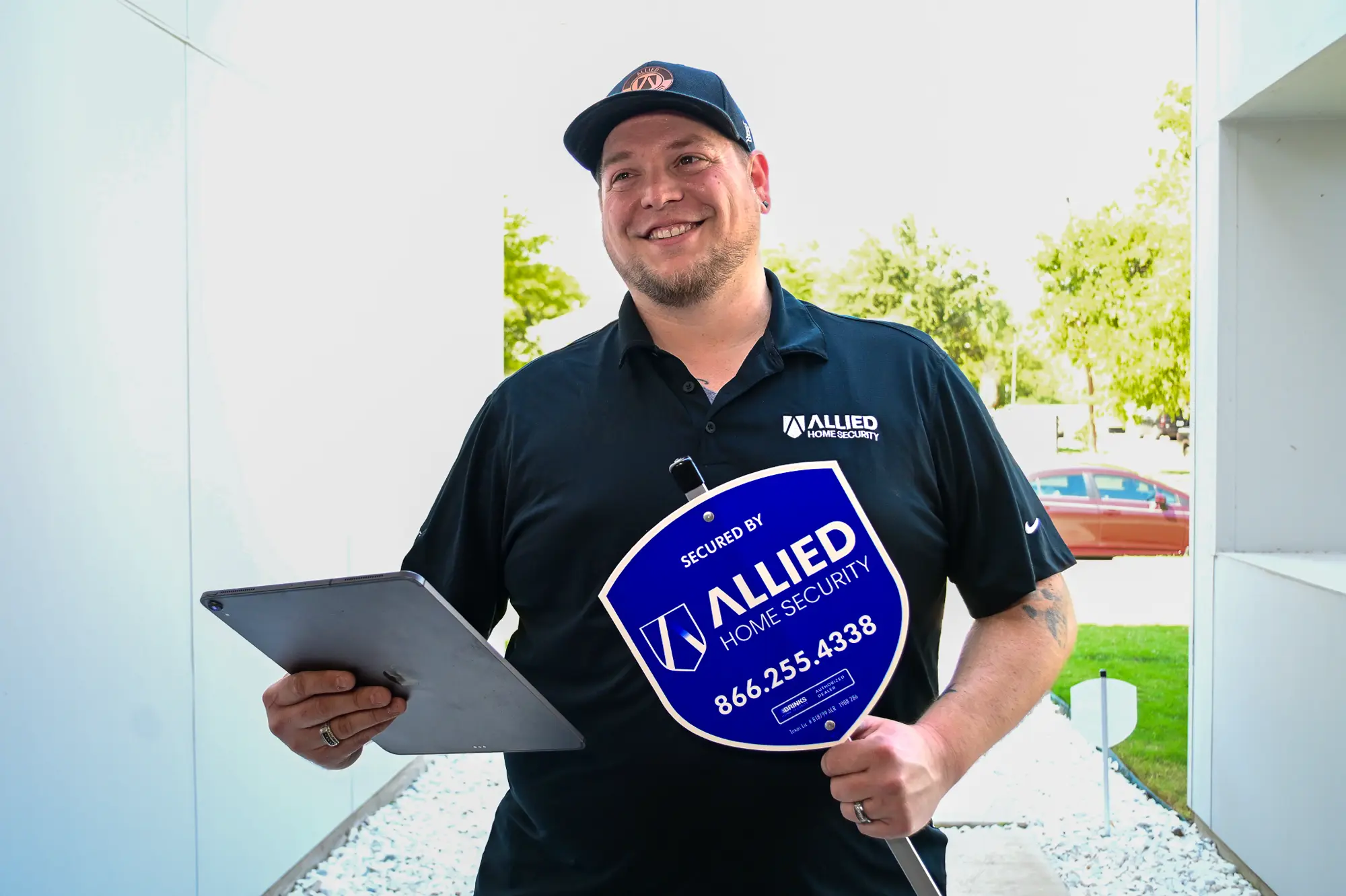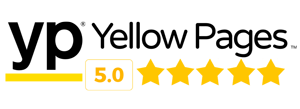DIY vs. Professional Security Camera Installations
One big decision when getting a home security camera system is whether to do it yourself (DIY) or hire a professional installation service. Both routes have their merits, but they can differ greatly in terms of effort, cost, quality, and long-term reliability. Let’s compare DIY vs. professional setups, and why many homeowners ultimately opt for professional installations for something as crucial as security.

DIY Installation
In recent years, the market has exploded with “DIY” security cameras and systems – these are typically wireless or easy-to-install devices marketed for anyone to set up with minimal tools. The obvious appeal is lower upfront cost and the satisfaction of controlling the setup yourself. You don’t have to pay installation fees, and you can install on your own schedule. For tech-savvy individuals or those with very small setups (like one or two cameras), DIY can be quite feasible. Modern cameras often have peel-and-stick mounts or simple bracket installs and step-by-step apps to get them online. Another benefit: no long-term contracts – many DIY systems are self-monitored, meaning you’re not locked into a professional monitoring service (though some offer optional monitoring or cloud plans on a monthly basis without long commitments). DIY solutions also allow you to expand gradually – you can start with one camera and add more later as needed, buying equipment piecemeal.
However, DIY camera setups often have limitations when compared to professionally installed systems. One major issue is the potential for installation errors or suboptimal coverage. Professionals are trained to place cameras optimally – they know how to avoid blind spots, choose proper mounting heights/angles, and ensure stable connections. DIYers, especially first-timers, might inadvertently position cameras poorly (e.g., aiming too high/low, leaving easy climbing access to disable them, or not covering key entry points). It’s noted that incorrect camera placement and poor wiring are common risks with DIY installs, which can lead to a “less effective security system”. For example, a DIY installer might put an outdoor camera where a tree branch constantly triggers it or miss covering a back window that a burglar could exploit.
Another factor is expertise in setup and integration. Professional installers bring a wealth of knowledge – they understand how to integrate cameras with other security components (sensors, alarms) and optimize the network for them. A pro can ensure that all your devices work seamlessly together, something that can be tricky for DIY if you’re trying to piece together different gadgets. They also handle the “technical headaches” – running wires through difficult spots, configuring your NVR or router settings, and calibrating camera settings to avoid things like false alarms. As a result, a professionally installed system often ends up more reliable and tailored to your home’s unique layout, whereas DIY tends to be one-size-fits-all.
Pros:
- Flexible schedule – install at your own pace
- No long-term contracts (pay as you go, self-monitoring options)
- Can expand system gradually as neede
Cons:
- Easy to make installation mistakes (blind spots, poor wiring, suboptimal angles)
- Lower-quality equipment and shorter warranties
- Risk of unreliable alerts and false alarms
- Technical troubleshooting and maintenance is all on you
- Often ends up with hidden subscription costs for full features or cloud storage
- No professional monitoring or expert support
Who it’s for:
- Tech-savvy DIYers with very basic security needs
- Renters or people needing a quick, temporary solution
- Anyone on a strict budget willing to accept trade-offs in quality and reliability
Professional Installation
Hiring a security camera installation company is when a licensed technician or team comes to your home, consults on where cameras and equipment should go, and installs everything correctly. The upfront cost is higher – you’ll likely pay for labor, and sometimes equipment costs through the installer (though many companies offer deals like “free installation” or free equipment with a monitoring contract). The big advantage is peace of mind and quality. Professionals will mount cameras securely (so they don’t fall or get easily tampered with), use proper tools to conceal wires or ensure weatherproofing, and optimize camera angles for maximum coverage with minimal blind spots. They can also install complementary security hardware – e.g. motion sensors, sirens – and integrate it with your cameras.
One often overlooked benefit is that pro installers provide training and support during and after installation. They’ll show you how to use the system, adjust settings, and may even help set up your smartphone app. If any issues arise during install (e.g., weak Wi-Fi in one area), they can offer solutions on the spot, like adding a range extender or moving the router. This level of service contrasts with DIY, where if something doesn’t work, you’re on your own to troubleshoot via forums or customer support lines. Indeed, limited support is a challenge in DIY scenarios – user manuals and online FAQs can only go so far. With a pro, if a camera isn’t focusing right or a setting needs tweaking, you have an expert to handle it. And in many cases, professional security companies offer ongoing customer service or maintenance plans, so you have someone to call if you encounter problems later.
Professionally installed systems also often come with professional monitoring options. While you can self-monitor any camera (just getting alerts to your phone), many pro companies tie the cameras into a 24/7 monitoring center. That means if your cameras or alarms detect a real threat, trained operators can verify it and dispatch police or firefighters. DIY camera setups typically do not include this – it’s on you to respond to notifications. Having a monitored system can be critical if you’re away or can’t immediately respond to an alert; it’s a layer of security DIY can’t match unless you pay separately for some service.
Lastly, quality of equipment tends to be higher with professionally installed systems. Companies like Allied Security (to use a relevant example) use commercial-grade cameras that often have better specs and durability than some off-the-shelf consumer DIY cams. Pros ensure things like proper night vision function, secure connections, and often provide extended warranties on the equipment. DIY cameras might have shorter warranties and if they malfunction, you’ll have to deal with returns or replacements yourself. With a professional, if a camera fails under warranty, you call them and they fix or replace it – less hassle for you. This higher build quality and support means pro systems can be more stable in the long run (fewer false alerts, clearer video, etc.).
To illustrate, one security provider noted that 44% of people prefer professionally installed security systems – likely because of these factors of ease and trust. People value that a job as important as securing their home is done right. It’s akin to the difference between buying a DIY car alarm and having a mechanic install a full security system in your car; one is cheap and quick, the other is thorough and guaranteed.
Pros:
- Expert installation ensures optimal coverage with no blind spots
- Commercial-grade equipment and extended warranties
- Seamless integration with alarms, monitoring, and smart home features
- Ongoing support, training, and maintenance included
- 24/7 professional monitoring available (for immediate emergency response)
- Fewer false alarms, more reliable notifications
- Less hassle – no technical headaches or guesswork
- Peace of mind knowing your system is set up right, from Day One
Cons:
- Higher initial cost (though often offset by included equipment and installation deals)
- May require a scheduled installation appointment
- Some systems may have a minimum monitoring commitment (but many, like Allied, offer month-to-month)
Who it’s for:
- Homeowners who want maximum protection and reliability
- Busy families, professionals, and anyone who values their time
- Those who want professional monitoring and fast emergency response
- Anyone wanting long-term value, best equipment, and true peace of mind
Our Pick: Professional Installation
Professional installation stands out as the smarter choice for most homeowners. While DIY setups might save a few dollars upfront and work in simple situations, they often miss the mark when it comes to reliability, proper coverage, and long-term performance. With a professional install, you’re getting expert placement, high-quality equipment, and seamless integration with monitoring services—everything working together to protect your home more effectively. When your family’s safety and peace of mind are on the line, it’s easy to see why so many choose the added confidence that comes with a professionally installed system.





